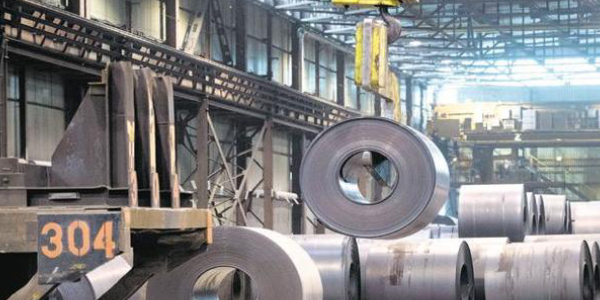The steel industry of India has witnessed an increase in customs duty for precise materials. This has been seen in the budget of 2019-2020.
According to the budget recommendation from the Association of Steel Industry to the government, it is stated to discourage imports. The association has recommended that India must discourage the import of a few non-essential steel items. It includes color coated steel, hot rolled items and many more. The reason stated is that it is very well produced here and has the ability to cover the entire requirements of the domestic sectors.
The association of the steel industry is represented by all India’s private sectors and the major public steel enterprises.
At present, the steel sector is heavily bleeding because of the huge imports. The Government tried many schemes to help the steel industry, but it did not prove to be of much help. The industry of steel in India is known to be the highest sector that is leveraged. But seeing the situation and the condition of the industry, the banks are not in a position to present any more fresh loans.
With the help of GST, there will be a change in the steel industry.

Reduction of Logistics Cost and Time
Whenever a truck passes through different states, many indirect costs were attached to the product. Because of these indirect attributed costs, the product price increases. Every time, it passes through different check posts of different states, it delays the supply of the goods. Now with the GST, there will be saving time for up to 40-45%. Check Out Here – About the reduction of tax on steel sector in the offing.
Generation of Employment in the Unemployed States
Because of the GST implementation, one will witness the reduction of corruption in highly corrupted states. It includes Jharkhand, Orissa, Chhattisgarh, and Karnataka. Now with the help of GST, the middlemen will be left out from the exploited system. This, in turn, it will help more people to be employed as they will now have to follow the business line. The employment in the undeveloped states and also the other states will help in the improvement of the GDP.
Utilization of Natural Resources
The implementation of GST on the steel industry will help the states especially the underdeveloped states. It will help them to get more money for the resources. The proper auctioning and the middleman elimination will help the state government to know the exact value. The government will now have a clear idea and picture of the steel industry and they will also know whether they have rightly paid. The proper price and value of the steel will be rightly paid.
Protection to Domestic Industry
The steel industry in the domestic sector is always in the threat of a rise in imports. With more and more imports of steel, the domestic industry will run out of business and will slowly start the chain of employment. This is also one of the main reasons for the Indian steel association to discourage the import of certain steel.
The implementation of GST will help to provide proper employment to the domestic sector. Even if it is exported, it is requested that the implementation of GST must be at the same level as that of the Export and the domestic sector. This way, it will balance the system.

Reduction in Production Cost
The GST rate is likely to be 12% to that of the indirect tax of 20%. Hence one can see it will reduce the cost of production.
The Government has come up with many schemes and plans to help the domestic sector and also the steel industry. The export duty on the pellets or the iron has been made to zero, thereby helping the domestic market to be more eligible and competitive in the international market. The government has also made mandatory making the domestic steel attainment for the cities.
The government policy of Make in India has seen a huge impact on promoting great value inside the country. It is also stated that the import duties on certain raw materials that are used in the steel industry like the paint, zinc, lubricants, iron ore, etc. must be removed.
With these initiatives, India will soon be seen to become the second-largest producer in the world in the crude steel industry in the coming decade. The steel industry will also be helpful to provide employment, all because of the GST.
